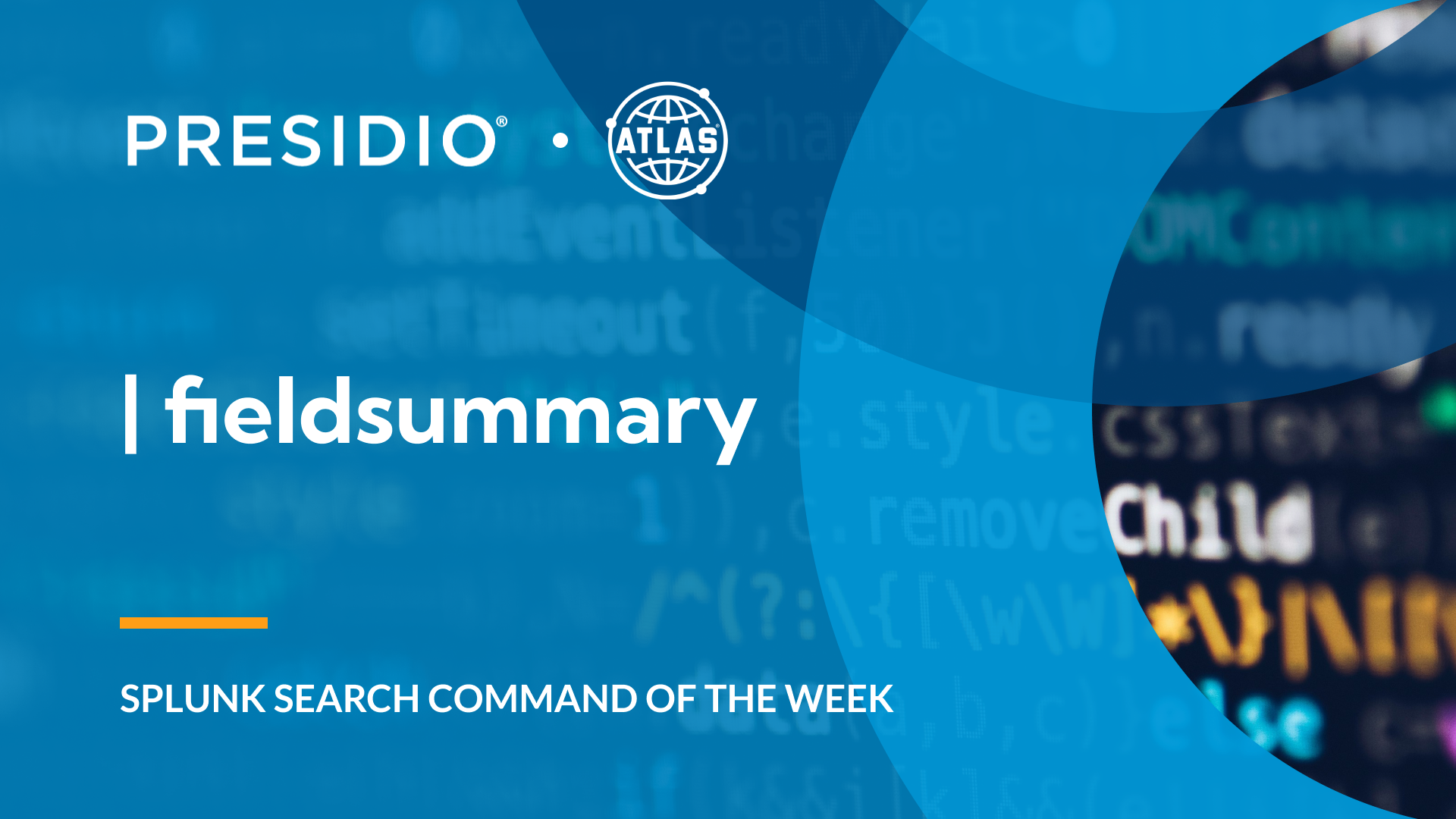When Seconds Cost Thousands: Fixing the Splunk Performance Gap
Splunk performance problems are not just an annoyance. They slow down investigations, delay alerting, and waste hours of analyst time. A ten-second delay on a dashboard might not sound like much, but across a global team that time adds up fast.
Many organizations try to solve this by scaling through the pain. They add more hardware, run more searches, or expand clusters. These efforts often increase cost without solving the root problems plaguing the system.
This post looks at how teams can improve Splunk speed and efficiency using technical management techniques without rebuilding pipelines or infrastructure.
Splunk Searches Are Slow. How Can I Speed Them Up?
Search performance is one of the most common pain points in Splunk environments. The usual culprits include inefficient queries, poorly constructed dashboards, and overloaded indexers.
The result is slower results for every stakeholder:
- Delayed detection or alerting
- Frustrated security and engineering teams
- Analysts spending more time waiting than investigating
Identification of the core Splunk behaviors is the first step to solving the problem. Before you start building Splunk out, take a deep breath and ensure you know what the actual issue is. More often than not, is behaviors on the platform, not physics, that are causing pain.
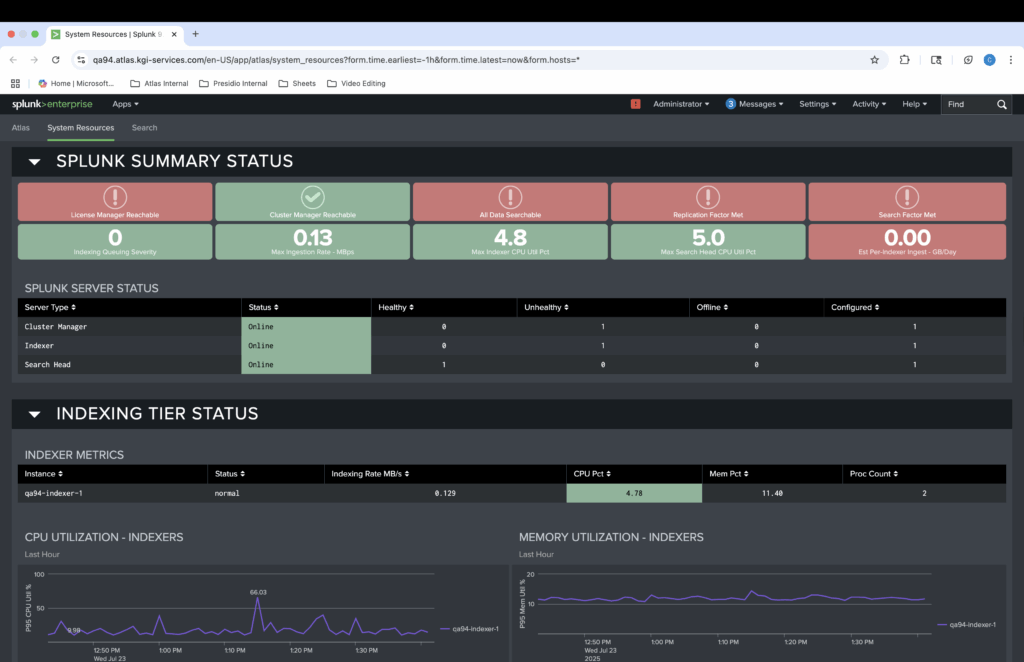
How Atlas Helps: Atlas includes Performance and Capacity Analytics that highlight search durations, concurrent search loads, and search head bottlenecks. Teams can use this data to identify slow searches, excessive join usage, or dashboards that fetch too much data. With guidance from Expertise on Demand, admins can tune searches or rework visualizations with minimal effort.
Through proper management of Splunk scheduled searches, Splunk admins can rededicate CPU cores that were reserved for background searches to active searches, increasing speed of searches during high use. Ensure your scheduled searches are not on bottlenecks, and that common time periods such as the top of each hour are not over burdened with scheduled searches.
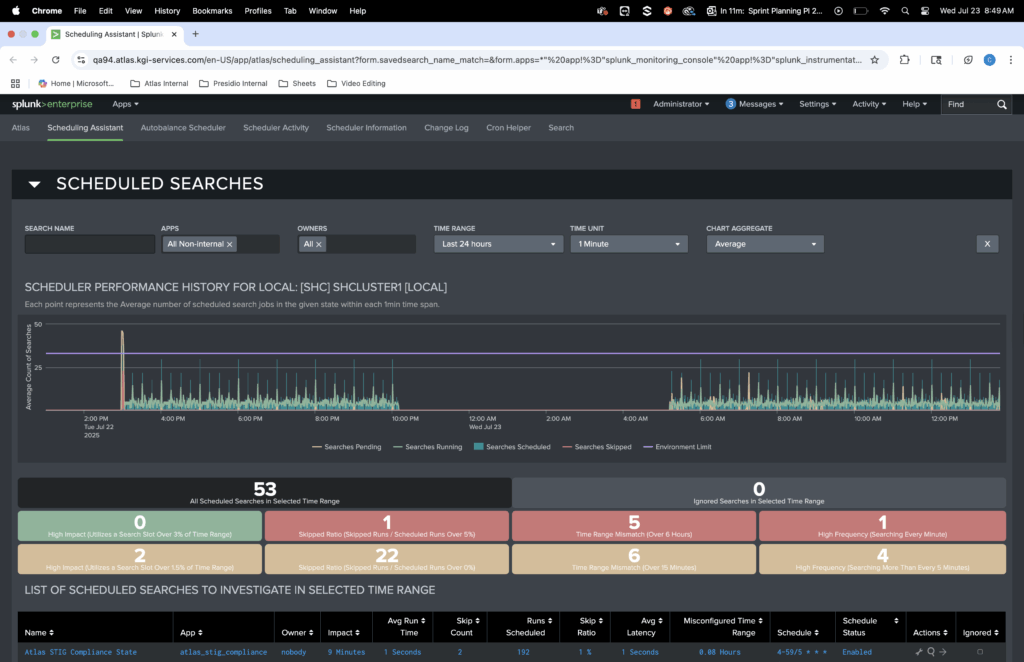
How Atlas Helps: Atlas’s Scheduling Assistant provides the visibility on these bottlenecks, along with unique tooling to reschedule searches from a centralized tool. Scheduling Assistant will also recommend schedules for you to use, reducing the guesswork from the process.
What is the Best Way to Manage Data Onboarding in Splunk?
Data onboarding is often messy. Manual configuration of inputs, props, and transforms can introduce inconsistencies that affect indexing speed and search performance later on.
Without a clear process, onboarding becomes slow and risky:
- Poor field extractions that degrade search accuracy
- Duplicate data ingest from misconfigured inputs
- Long onboarding cycles that delay operational use
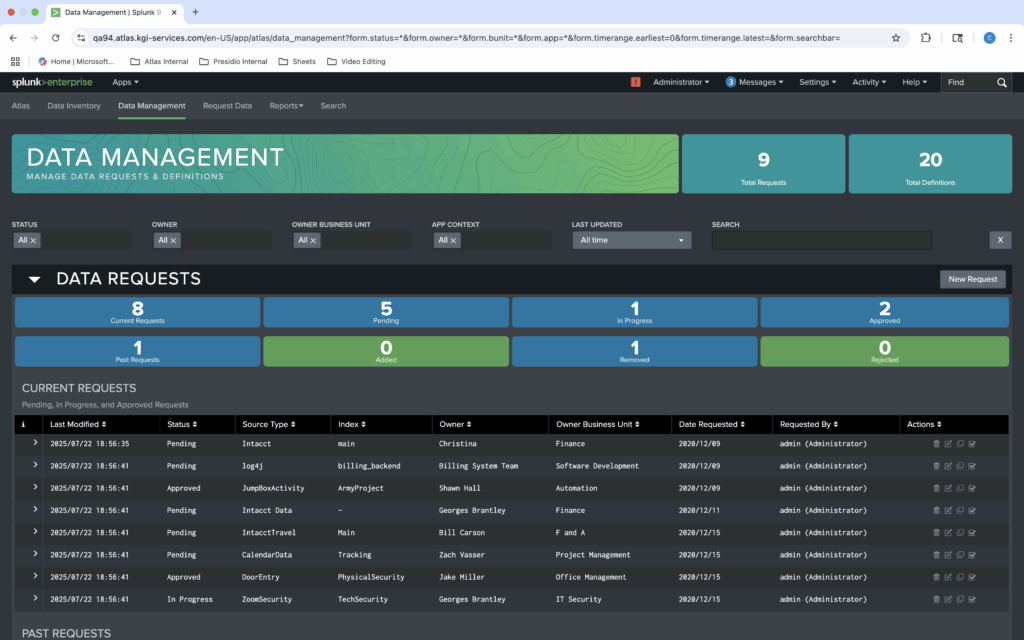
How Atlas Helps: The Atlas Data Management workspace provides a structured inventory of onboarded data and its metadata. Administrators can assign ownership, monitor usage, and review data definitions in one place. This allows teams to manage onboarding consistently while reducing manual errors and ingestion delays. Paired with Atlas Data Utilization, admins can track how data is being leveraged by users once it’s in the system, and ensure underused data is revisited for usability and usefulness.
Why is Splunk Lagging When I Run Dashboards or Reports?
Even a small dashboard can become a performance issue if it relies on expensive searches or wide search windows. These delays frustrate users and make the platform feel unreliable.
Common issues include:
- Dashboards that search across large time ranges by default
- Overlapping scheduled reports causing search queue congestion
- Inefficient SPL with multiple joins or subsearches
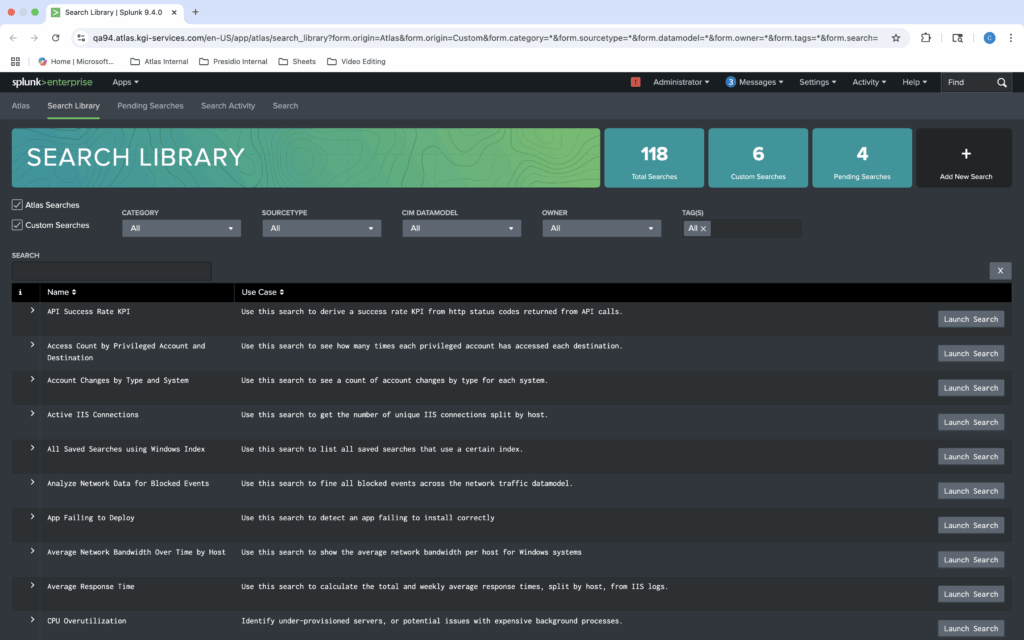
How Atlas Helps: The Atlas Search Library includes a collection of vetted and optimized searches that teams can use to replace inefficient SPL. With visibility into search activity and overlap, teams can redesign dashboards for performance without removing critical information. Atlas Expertise on Demand can also sit down with your Splunk admins and review your searches for best practice, offering guidance and lessons learned from their years with the platform.
Unlock Faster Searches Without the License Bloat
Splunk performance problems do not always require new infrastructure. With the right tools and guidance, teams can speed up searches, streamline data pipelines, and improve dashboards using what they already have.





